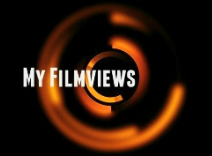Films about the Wild West have remained a classic paradigm throughout the decades. Amongst the best, a few stand out as lesser-known films that have withstood the test of time. The historic tale of Wild Bill Hickok, for example, continues to hold the interest of film audiences. It is a tale that includes adventure, gambling, and gunfights, essential elements in western action films.
Wild Bill Hickok
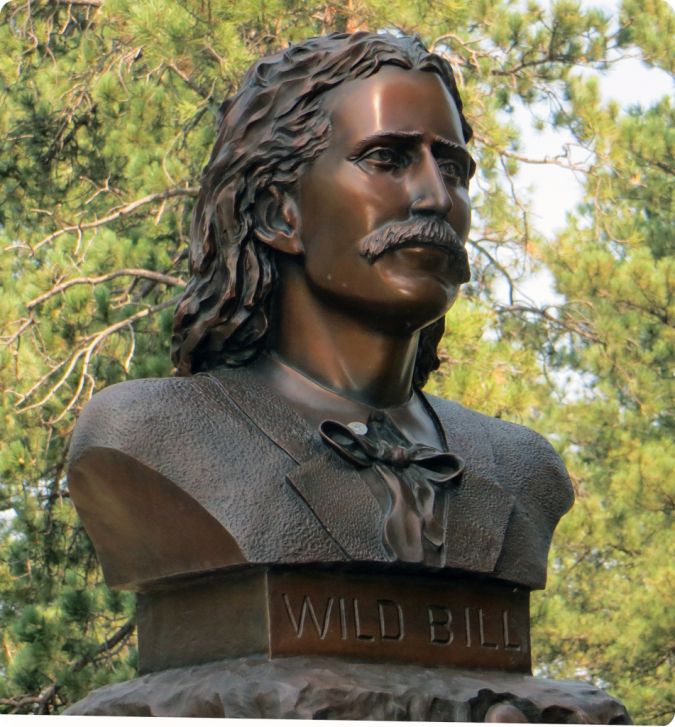
James Butler “Wild Bill” Hickok was born on May 27, 1837. He died thirty-nine years later on August 2, 1876. Wild Bill’s violent death and the surrounding events have caused Hickok to become a classic folk character straight out of the days of the Old West. While certain details have been fictionalized, Hickok was a gambler and gunfighter who earned his title as a sheriff. Born and raised in a rural area of Illinois, Hickok became a fugitive in his late teens, finding work as a stagecoach driver, an officer, and as a spy during the Civil War, for the Union Army.
During his short life, Hickok was renowned as an expert shooter, scout, actor, and professional gambler, becoming a legend for his role in several shootouts. The most famous occurred when Wild Bill was shot in the back and killed by a losing gambler. The hand that he held at the time became what is known in popular folklore as a Dead Man’s Hand, now believed to be a combination of eights and aces.
The Legend behind the Name
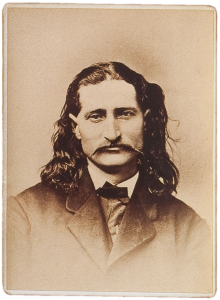
The 1995 movie, describes the legend of Wild Bill, focusing on his final days, starring Jeff Bridges, John Hurt, Ellen Barkin, and Diane Lane. The movie was directed and written by Walter Hill, Pete Dexter, and Thomas Babe, who authored the book Deadwood, and the play, “Fathers and Sons,” respectively. In the film, Wild Bill, played by Jeff Bridges, finds himself in the frontier town of Deadwood. In the Dakota Territory, Jack McCall (played by David Arquette) seeks revenge on Hickok, believing that Hickok has undermined his family. In the film, Wild Bill is clearly disturbed by his tumultuous relationship with Calamity Jane (played by Ellen Barkin), images from his past, by his failing eyesight, and by the arrival of the vengeful newcomer.
The Making of the Film
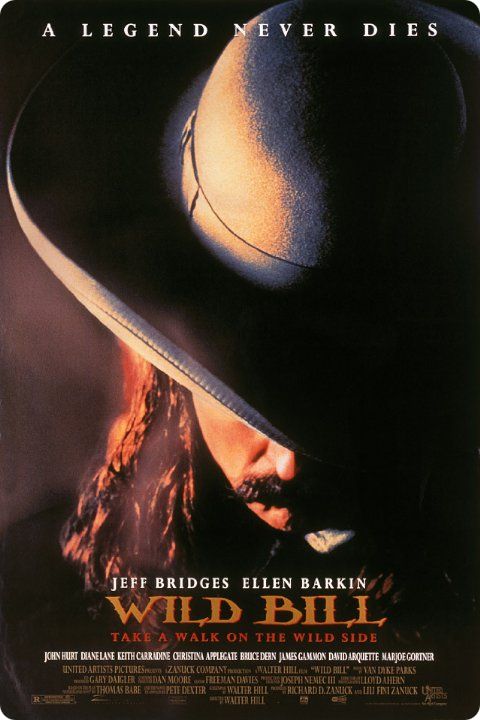
Director Walter Hill commented after the making of the film that he had a tremendous amount of respect for Jeff Bridges, both as an actor and as a man. Bridges’ role as the main character led to the movie’s success. Although the film received varied reviews, it is considered a successful portrayal of the lawman whose personal interpretation of justice ultimately brings him down.
Based on the play “Fathers and Sons” (Babe, 1978) and the book , Hill explained that he took elements from the town of Deadwood from Dexter’s novel. Whereas, he developed the relationship between Hickok and McCall from Thomas Babe’s play. Babe, who fictionalized McCall into Wild Bill’s illegitimate child, developed McCall’s character using ample poetic licenses. Babe commented that he “chose lurid,” portraying McCall as the antithesis of a son Hickok was likely to have fathered.
When Walter Hill saw the play in 1980 in Los Angeles, California, he already considered basing a movie on the events leading up to Hickok’s famous murder. What intrigued Hill most about Hickok was his celebrated reputation as a lawman and a gambler.
The making of the film cost approximately $30 million American dollars yet it took in barely $2 million in the US. Although the movie was criticized for plot elements and pacing, it has since been described as almost lyrical in its composition. The filmmaking elements provide a unique portrayal of gambling in the Old West.
Dead Man’s Hand
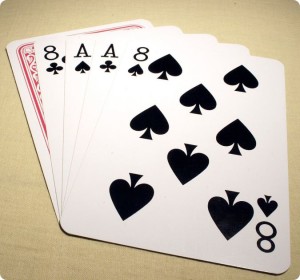
Today, the term “Dead Man’s hand” refers to a specific combination of black eights and aces, the hand that Wild Bill was believed to have held at the time he was shot. The exact composition of the hand has changed over the decades. Presently, the hand consists of two pairs of cards in poker, the black eights and aces. Combined with an unidentified “hole” card, this hand is synonymous with the legendary card player. Although the term was used during the late 1800s and early 1900s, the connection to Wild Bill wasn’t clear until the ‘20s when the hand was believed to be a full house that included a pair of tens. Sevens and jacks have also been labeled a “dead man’s hand.”
No matter how the hand is described, it is certain Hickok was truly a legend in his own time. Wild Bill has since become the subject of a book, a play, and the 1995 movie, one of the best gambling films about the West. Moreover, Hickok’s marksmanship and ability to handle a six-shooter helped save his game many times, up until that historic and fateful poker game in Deadwood.
